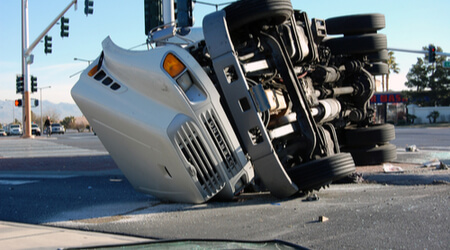
The Port of Charleston is growing and thriving, which is a good thing for the area’s economy. As economic activity at the port increases, it means more truck traffic on Interstate 26.
This major east-west interstate – the longest in South Carolina – is already experiencing overcapacity that makes travel dangerous. With more traffic into and out of the port, the risks are likely to get worse.
The Port of Charleston is the fourth busiest container port in the United States and handles more than $3 million in cargo every hour. The port “exists to drive economic investment to South Carolina,” and the port’s expansion brings more jobs to the area.
With the growth of the port comes a greater need for trucks to travel in the area. The majority of these trucks will use I-26, which is the main route that connects Charleston to the rest of the state and country.
As a result of traffic and poor road conditions, a disproportionate number of fatalities already occur on I-26 as compared with other interstates. The higher fatality rate is especially a problem on the segment of I-26 that stretches from Orangeburg to Summerville. However, the problems that plague the interstate – including outdated design and congestion – persist throughout much of the road’s length across South Carolina.
Poorly designed and maintained roads can make truck accidents far more likely, as tractor-trailer drivers could lose control, have problems with visibility or be unable to stop in time to avoid an accident in high-traffic areas, for example. Poorly maintained roads, such as those with potholes, structural problems or narrow shoulders, maybe especially dangerous and can make truck accidents more likely.
Parts of I-26 are both poorly designed and poorly maintained, and the road is not equipped to handle current traffic demands, much less future ones.
Conditions are already bad and, with the Port of Charleston’s growth, the truck traffic on the road may as much as double within the next 10-12 years. This will only make the situation on I-26 worse unless the road is modernized. This could cost as much as $1 billion and could take around a decade to complete.
While some work is being done, there are no current plans to fully modernize and expand the entire highway to bring it up-to-date and make it safe for increased port traffic. This means that the growth of the Charleston port could be bittersweet for the state of South Carolina and for those who live and work in Charleston. The port’s expansion may result in more jobs and increased economic activity, but also in more deaths and serious injuries due to truck accidents.
Responsibility for Truck Accidents on I-26
When a truck accident happens, the truck driver and trucking company may be considered legally liable and made to compensate crash victims if the driver’s negligence caused the truck crash. If road conditions were a contributing factor or were responsible for causing the truck accident, then the government entity responsible for road design and maintenance could be a potential defendant in an injury lawsuit.
Sovereign immunity laws give government entities limited protection from being sued, but it may be possible to hold them responsible if they endanger the public by failing to do their jobs and provide safe roads. If there is a poorly designed or poorly maintained road that the government knowingly does nothing about, and people get hurt as a direct result of the conditions, then the responsible government agency may be liable.
Taking legal action against the government can be complicated. You will need a qualified and experienced attorney with a track record of success in truck accident lawsuits in South Carolina.
At Joye Law Firm, we understand how devastating it can be when you or a loved one suffers serious injury in a truck accident. We are ready to help those who have been injured in a truck accident on I-26 or who have been harmed in any type of truck or car accident anywhere in South Carolina.
To find out how we can help you, call Joye Law Firm at (888) 324-3100 or fill out our online contact form for a free and confidential claim evaluation.
Sources:
- South Carolina Ports



























